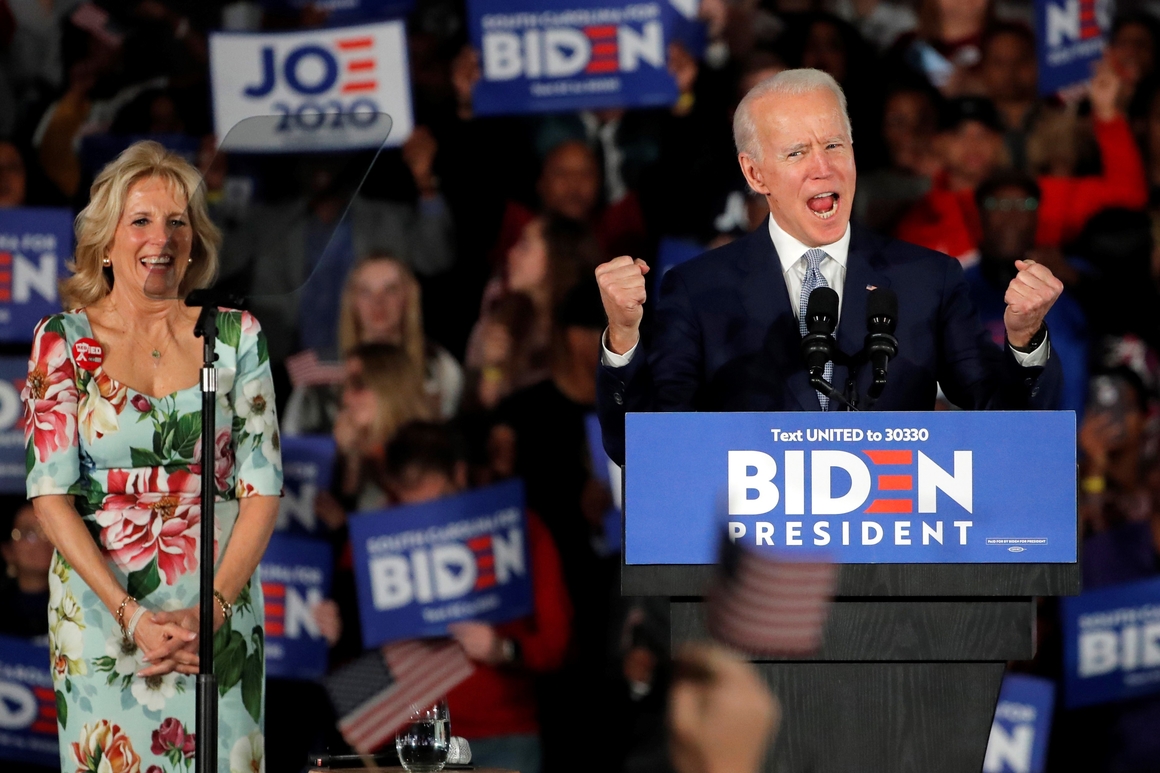
Biden won 48%-20% over Sanders. He won white voters comfortably (33%-23%) and crushed Sanders among black voters (61%-17%). He won voters of every education level. He even beat Sanders among self-identified Independents, a core group for the Vermont senator.
The victory was powered by an electorate that was more moderate than the first three states. Half of South Carolina voters identified as moderate (41%) or conservative (9%) and half as somewhat liberal (30%) or very liberal (19%). But Biden won every group. The victory revealed an important demographic and ideological divide in the Democratic Party: black voters, especially in the South, are a moderating force in the national party. Biden promised that nobody should count him out until South Carolina’s more diverse electorate had its say and he was right.
It was one of the great comebacks in Democratic primary history. Things were looking so bad for Biden after New Hampshire that many of his natural allies in Washington — the anti-Sanders establishment of current and former elected officials who’ve been on suicide watch for much of the month — were ready to flee to Michael Bloomberg.
Then the reality of Bloomberg became clear at the debate in Nevada. Then Biden finished a not completely embarrassing second place in the state. He decamped to South Carolina, the early state with the best record of picking both party’s eventual nominees, with a campaign that was broke and near death.
In the debate there Bloomberg was only marginally better, Biden stood out, and Sanders was hit with almost two hours of attacks. The establishment started to coalesce with Jim Clyburn’s Ash Wednesday endorsement of Biden. The resurrection was complete when the networks realized the blowout was so overwhelming that they called the race as soon as the polls closed at 7 p.m.
Sanders, anticipating a repeat of 2016 when he lost to Hillary Clinton 73%-26%, fled South Carolina early and in the end couldn’t even match his previous percentage.
There are six states voting on Super Tuesday with electorates that roughly resemble that of South Carolina (Alabama, Arkansas, North Carolina, Tennessee, Texas and Virginia). Sanders lost all of them in 2016. Biden has to be the clear favorite in all except Texas, where Sanders has been polling well and has improved his standing among Latino voters compared to 2016.
Sanders lost California and Massachusetts in 2016, but before Saturday at least, he was the leader in both states. If there are any polls in the next three days, changes in those three places — Texas, California and Massachusetts — will be a bellwether of how consequential the South Carolina landslide is for Biden.
The other states to vote Tuesday — Vermont, Oklahoma, Colorado, Maine, Minnesota, and Utah — are likely Sanders strongholds. The Biden comeback seems to set up a very close fight for delegates between the two men, with Bloomberg’s role as a wild card.
At Biden’s victory party here, Clyburn paid tribute to Biden as not necessarily the ideal candidate, but the right one for the moment. He cleverly quoted Alexis de Tocqueville as saying that America’s “greatness” is the “goodness” of its people and “that if Americans ever cease to be good, America will cease to be great.” Clyburn’s sly explanation for Biden’s troubles was that “people were confusing goodness as weakness.”
Instead, he said, it is Biden’s strength. “This campaign, this year, is about the goodness of America,” he said in his understated tribute. „And we have as our candidate a real good man.”
Source: politico.com
See more here: news365.stream






